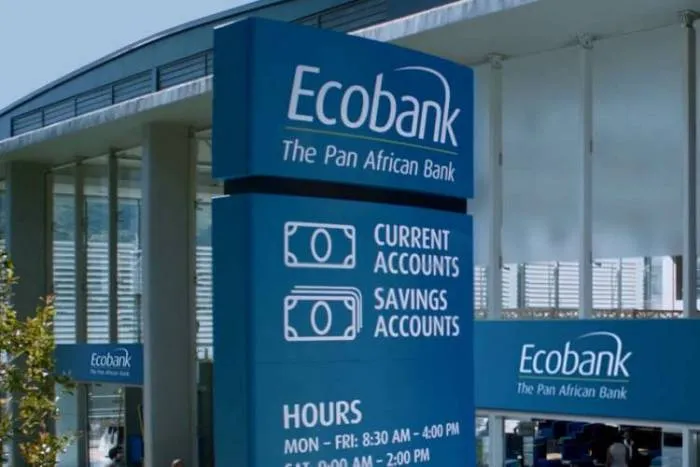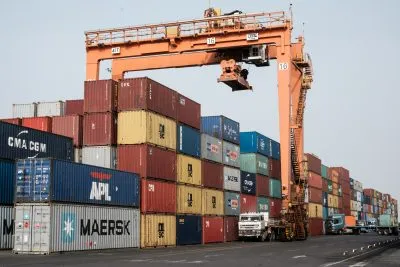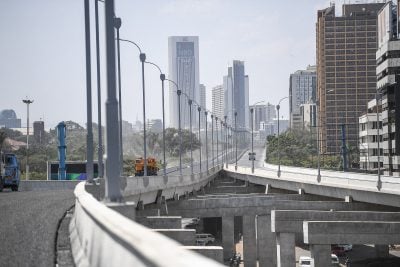Cut off from most international assistance, entrepreneurs in Somaliland have built the would-be country’s economy from scratch.
The floor of Yahye Yusuf’s office is covered with a carpet of muffin packages, a testament to the success of his bakery in Hargeisa, the capital of Somaliland.
Yusuf started French Pastry in 2011 after noticing the popularity of croissants and other pastries imported from Djibouti. Initially, he produced only croissants at a maximum of 300 a day and had to persuade shopkeepers to take his pastries while shelling out $30 for a plastic container in each shop to house his products.
“Now they ring up and ask me to deliver early in the morning and are buying extra containers themselves,” Yusuf says. These days the bakery produces about 2,000 croissants daily, along with 5,000 muffins and various quantities of cakes, loaves of bread, and biscuits. “You’ve got to know your market,” he says.
Yusuf is following a strong tradition of Somalilander entrepreneurs who have emerged over the past couple of decades and had a profound impact on their country, a semi-autonomous region of Somalia that is still seeking its independence.
“It would not be an exaggeration to describe the private sector as the unsung heroes of Somaliland’s struggle for survival,” says Rakiya Omaar, a Somali lawyer and Chair of Horizon Institute, a Somaliland consultancy firm helping communities transition from underdevelopment to resilience and stability. “The spirit of entrepreneurship has been a central and critical thread in transforming the economy.”
After Somaliland’s declaration of independence from the Republic of Somalia in 1991, following three decades of strife and civil war, it was Somaliland businessmen who took on the job of a building a new country in circumstances that would have put off the most seasoned capitalists, Omaar explains.
They helped establish a rudimentary police force, financed peace conferences, contributed funds to the government, provided jobs, facilitated remittances and “unleashed hope and pride in self-reliance”, Omaar says.
Much of that entrepreneurial drive stemmed from necessity. As the international community has not recognised Somaliland’s claim to sovereignty, the self-declared independent nation has been cut off from large-scale international assistance and access to global financial systems and institutions and has had to go it alone.
After the civil war Hargeisa was in ruins. Now arrivals to the sun-blasted city of 800,000 people encounter a mish-mash of chaotic market commerce existing alongside diaspora-funded construction, including glass-fronted office buildings, trendy cafes and air-conditioned gyms. From the rubble Hargeisa has become a place where airlines, money exchanges – including companies providing electronic money transfers – construction companies and one of Africa’s cheapest and most efficient telecommunications services are thriving, as well as more micro-level businesses like French Pastry.
“There are huge opportunities here and there is peace,” Yusuf says.
“When you have that combination, as long as you can get the resources and skilled labour, it’s a good place for small businesses to flourish.”
Yusuf says his business could not have expanded at the rate it has without receiving two funding rounds totalling $79,000 from the $11m Somaliland Business Fund (SBF), financed by the UK and Danish governments’ international development agencies and managed by the World Bank.
Despite the apparent moratorium on Somaliland’s international recognition, foreign governments are aware of the need to provide assistance to a country that remains poor and hampered by a fragile economy in a region fraught with insecurity and risk.
“Given the lack of a formal banking sector in Somaliland, the SBF fills a critical gap by providing matching grants to small- and medium-sized enterprises,” says Phil Evans, head of the UK’s Department for International Development in Somalia.
“Although Somaliland is strategically located with a long coastline, has access to ports, an excellent international trade position and investment opportunities in key sectors such as fisheries and livestock, poverty levels remain very high. The private sector is constrained by inadequate infrastructure, the high cost of fuel and energy, lack of access to credit and banking facilities, and a weak business climate.”
The fund has assisted 174 grantees, comprising 132 small businesses and 42 larger ones. One, Tayo Uniforms, received $70,000 from SBF to start a business producing school uniforms.
“Before there was no factory like this one,” says Amina Adan, the country’s managing director. “Now we are also making uniforms for private companies like Somcable, which lays fibre-optic cables, and the petroleum companies starting to come here.”
The factory offers a locally-produced alternative to cheap Chinese imports, and has created more than 45 jobs – a critical factor in a country with a chronic youth unemployment problem. Around 75% of young people do not have jobs.
“After university I was unemployed for two years,” says 28-year-old Khader Abdulrahman, designer and operator of the factory’s modern and elaborate uniform insignia-making machine. “Getting this job was a big relief.”
Somaliland’s fiscal state is also being helped by the growing economy of neighbouring Ethiopia. It is estimated that between $400,000 and $500,000 of trade from Somaliland to Ethiopia occurs at their shared border each day.
“Since 1993 Ethiopia has been our most important trading partner,” says Weli Daud, director of planning and statistics at the Somaliland Ministry of Finance. “And as its economy and population continue to grow we should benefit indirectly.”
That mutually beneficial economic relationship would be strengthened further if current talk about the so-called Berbera Corridor, a transportation link between landlocked Ethiopia and Somaliland’s Berbera port, could be turned into reality on the ground. Meanwhile, the options for growth for Somaliland businesses like Tayo Uniforms remain severely hampered while Somaliland’s banking system remains cut off from global systems. “If I could get a loan we could expand – but I can’t,” Adan said.
Fortunately other options exist. Adan pulled from a cardboard box three polo shirt samples she would take with her to the 8th-10th March Somali Investment Forum in Nairobi, Kenya, bringing entrepreneurs, investors, sector experts and business development experts together. Each shirt had a different emblem: one for Somaliland, one for Puntland – a semi-autonomous state in northeast Somalia – and one for Somalia. When it comes to business expansion Adan is eyeing all markets in the region regardless of the contested borders.
“Somaliland’s economy will keep growing even without international recognition,” Daud says. “The people here have a long business tradition – with Berbera port and the Red Sea this area has been a strategic trade hub for a long time.”
Want to continue reading? Subscribe today.
You've read all your free articles for this month! Subscribe now to enjoy full access to our content.
Digital Monthly
£8.00 / month
Receive full unlimited access to our articles, opinions, podcasts and more.
Digital Yearly
£70.00 / year
Our best value offer - save £26 and gain access to all of our digital content for an entire year!
 Sign in with Google
Sign in with Google 




